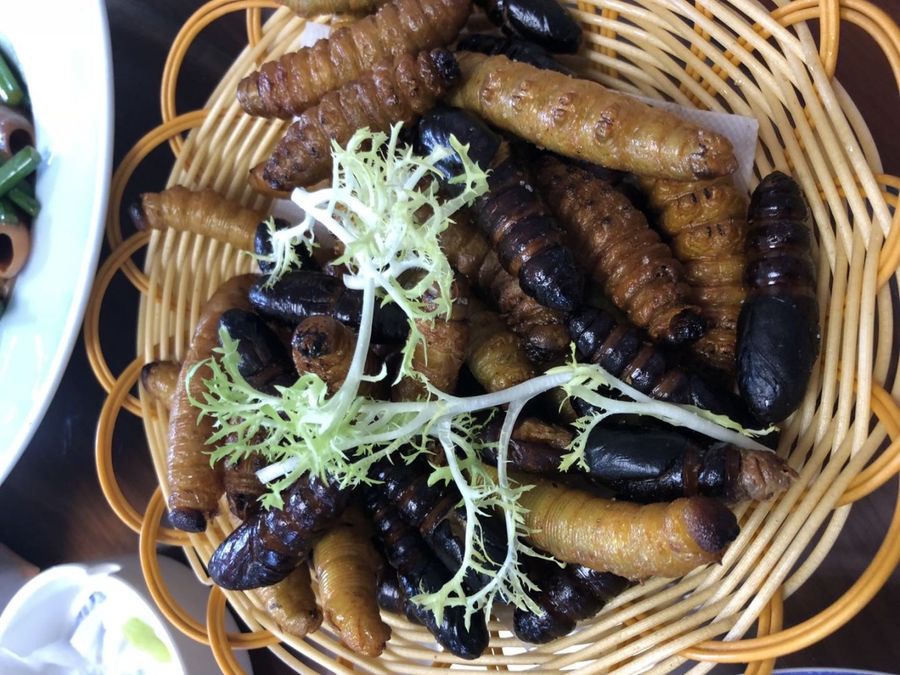Are you hungry: Survival tips for China

As a Singaporean trying to succeed in the workplace in China, I have to understand the Chinese working culture. The clients I was working with were mostly in their 40s, i.e., born in the 1970s. I had assumed that being in the same age group, doing business with them would be easy. I was quickly proven wrong.
In an attempt to establish a good working relationship with a critically important client, I readily made arrangements for dinner to break the ice. Getting a positive response was deemed a success as no one had succeeded in getting that far before. As we were nearing the date of the dinner appointment, I was told that it had to be cancelled due to his other more important commitments. The dinner was rescheduled, but the same "fly aeroplane" ( Singlish: to stand someone up ) tactics were used again. This went on for a couple more times until he finally agreed to the dinner on the 6th attempt. At that time, I thought this guy was harder to "chase" than a girl! I later learnt that my sincerity and persistence eventually won him over and we remain good friends till this day.
None of them had ever dreamed of driving a car, much less owning one. I am not sure if I can ever fully understand their childhood, where coupons were allocated to families for food and clothing, and where families shared a pair of trousers amongst 5 siblings.
While chatting with him on the topic of food, I learnt that people of his age group had experienced hungry days in the past. There were days when they could not get food on the table and they had to scavenge for worms and roast them on sticks to fill the stomach. Ironically, this has become a delicacy which I had the "privilege" to try recently in Shandong.

These days, as I see countless luxury cars zip through the modern roads in China, I can't help but recall the many conversations I have had with my Mainland friends. None of them had ever dreamed of driving a car, much less owning one. I am not sure if I can ever fully understand their childhood, where coupons were allocated to families for food and clothing, and where families shared a pair of trousers amongst 5 siblings.
There were also numerous childhood stories where lives were lost in fights over a bowl of rice. Though quite unheard of these days, there are still stories of hunger that get reported in the Chinese media to remind the hungry generation that hunger still exists. For example, there was a recent incident where a man robbed and killed a person who had withdrawn 500 RMB from an ATM machine. He said he had not eaten for 3 days.
Although this may seem unnecessary and trivial, or perhaps even criticized as not working smartly, in that environment, actions speak volumes, and your level of efforts is translated as your level of sincerity.
Hunger is ingrained in this generation of Chinese and is something that they never want their children to experience. This is especially true when many of them only have one child, and they unconsciously overcompensate, showering them with things they wish they have had during their own childhood. It might then be easy to project that the next generation of Chinese may not be as hungry.
I have also had the opportunity to interact with the millennial generation who have it slightly better. However, the same drive is evident. During my conversations with the interns, I learnt that they would be moonlighting in the evenings after office hours and during the weekends, or attending additional classes in order to graduate with better academic results. When asked why they worked so hard, their answer: this is the only way they can compete with the other 7 million graduates in China's annual university cohort.
I learnt that to achieve true bonding, you need to go through battles together (一起扛过枪), i.e., literally translated to carrying guns together.
Being surrounded by people so hungry for success definitely influenced me. I had assumed that I was sufficiently self-driven and diligent in meeting my work targets. I was once again proven wrong. I began to observe and learn some of the habits of the Chinese. I made sure that I was the first to arrive in the client office daily at 7:30 am and be the last to leave. Although this may seem unnecessary and trivial, or perhaps even criticized as not working smartly, in that environment, actions speak volumes, and your level of efforts is translated as your level of sincerity. Therefore, actions count. To show that I was in for the long haul, I looked for an apartment to rent next to the client office and gave-up the trappings of the 5-star hotel stays. I recall the late-night walks back to the apartment, on those days, beggars and thugs still roamed the streets. Thankfully no incidents happened in those 5 years during my daily walks.

It was during one of those walks that I stopped by a roadside store for dinner. It was a proper eatery with clean chairs and tables, not too different from the regular eateries along Singapore's shophouses. I still remember I ordered a bowl of fried noodles and some fried dumplings which I thought were really good. However, the next day, when I shared my wonderful culinary experience with my colleagues, they responded in shock and disbelief. They shared that roadside eateries had the dubious reputation of using gutter oil(地沟油)to cook their food. Some even resort to boiling these oils with plastic bottles to "enrich" the flavour. Of course, this cannot be verified, and the stories could be exaggerated, despite being shown online news articles of such cases. I did remember thinking why the store was empty when I was tucking into my fried noodles. This is one hunger which I should have ignored!
Cultivating my hunger at work with the Chinese did reap benefits. They began to see me as one of them and we overcame many challenges together. I learnt that to achieve true bonding, you need to go through battles together (一起扛过枪), i.e., literally translated to carrying guns together. The contract with that critically important client, which was close to being terminated, was salvaged at the nick of time, and we went on to sign many more multi-million deals together. As shown, hunger does work.
How about you? Are you hungry?
